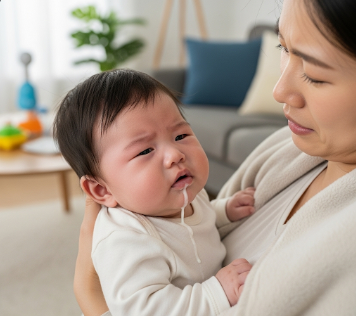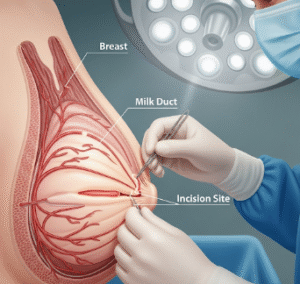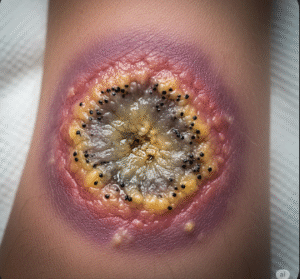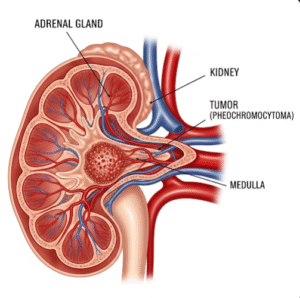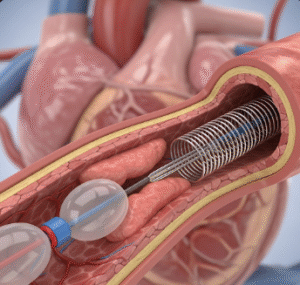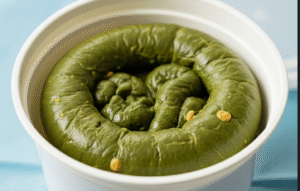Overview
Reflux in babies, also called gastroesophageal reflux (GER), occurs when stomach contents flow back into the esophagus, causing spit-up, vomiting, or discomfort. It is common in infants, as the lower esophageal sphincter is still immature and the stomach is small.
In Korea, pediatricians routinely evaluate infant reflux to distinguish between normal spit-up and gastroesophageal reflux disease (GERD), which may require treatment. Early recognition helps prevent complications like poor weight gain, irritability, or esophagitis.
➤ Most babies regurgitate small amounts after feeding
➤ May present with irritability, coughing, or feeding difficulties
➤ Usually resolves as the baby grows and the esophagus matures
➤ Persistent or severe reflux requires medical evaluation
Key Facts
➤ Affects up to 50% of infants under 3 months
➤ Often peaks at 4 months and resolves by 12–18 months
➤ Commonly associated with burping, feeding position, and overfeeding
➤ Severe or persistent reflux may indicate GERD or underlying medical issues
What is Reflux in Babies?
Infant reflux occurs when the lower esophageal sphincter (LES) is weak or relaxed, allowing stomach contents to flow back into the esophagus. This can cause spit-up, vomiting, or discomfort, especially after feeding.
While occasional reflux is physiologically normal, frequent vomiting, poor weight gain, or irritability may suggest GERD, which can require medical attention.
What Symptoms Are Related To
Reflux symptoms in babies vary from mild to severe:
➤ Frequent spit-up or vomiting after feeds
➤ Irritability or crying during or after feeding
➤ Arching of the back or pulling legs toward the abdomen
➤ Poor weight gain or feeding difficulties
➤ Coughing, gagging, or choking
➤ Refusal to eat or prolonged feeding times
What Causes / Possible Causes
Infant reflux usually results from immaturity of the digestive system, but other factors may contribute:
➤ Weak or underdeveloped lower esophageal sphincter (LES)
➤ Overfeeding or feeding too quickly
➤ Position during feeding – lying flat can worsen reflux
➤ Premature birth – common in preterm infants
➤ Food sensitivities or allergies – sometimes related to formula or maternal diet if breastfeeding
When Should I See My Doctor
Consult a pediatrician if reflux is accompanied by:
➤ Poor weight gain or failure to thrive
➤ Persistent vomiting or blood in vomit
➤ Difficulty breathing, choking, or severe coughing
➤ Excessive irritability or feeding refusal
➤ Signs of esophagitis (painful swallowing, discomfort after feeding)
⚠️ Early evaluation is important to prevent complications like esophageal irritation or nutritional deficiencies.
Care and Treatment
Home Care & Supportive Measures
➤ Feed smaller, more frequent meals to reduce reflux episodes
➤ Keep the baby upright during and after feeding for 20–30 minutes
➤ Burp the baby frequently to release swallowed air
➤ Thicken feeds (under doctor supervision) for some formula-fed babies
➤ Avoid tight clothing or diapers that increase abdominal pressure
Medical Treatments
➤ Medications – antacids or acid suppressants prescribed only if reflux is severe or GERD is diagnosed
➤ Evaluation for allergies or intolerances – may involve formula change or maternal dietary adjustments
➤ Monitoring growth and weight gain – ensure nutritional needs are met
➤ Referral to pediatric gastroenterology for severe or persistent cases
Treatment Options in Korea
Korean pediatric care centers provide advanced management for infant reflux:
➤ Diagnostics
➤ Physical examination and growth assessment
➤ Ultrasound or upper GI study if anatomical issues are suspected
➤ pH monitoring or endoscopy in severe GERD cases
➤ Treatment Approaches
➤ Guidance on feeding techniques and positioning
➤ Safe medications for acid reduction in infants
➤ Nutritional counseling for breastfeeding or formula-feeding
➤ Multidisciplinary care for complicated cases (allergy specialists, gastroenterologists)
➤ Top Hospitals & Clinics in Korea
➤ Seoul National University Children’s Hospital – Pediatric gastroenterology
➤ Asan Medical Center – Infant nutrition and reflux management
➤ Samsung Medical Center – Pediatric GI diagnostics and therapy
➤ CHA Bundang Medical Center – Multidisciplinary infant care
Final Thoughts
Reflux in babies is common and usually harmless, but persistent or severe cases may indicate GERD or other underlying conditions. Proper care, feeding adjustments, and medical monitoring ensure that babies grow comfortably and safely.
In Korea, parents benefit from specialized pediatric care, advanced diagnostics, and expert guidance to manage reflux effectively.
If your baby shows frequent vomiting, poor growth, or feeding difficulties, consult a pediatrician promptly for evaluation and management.

